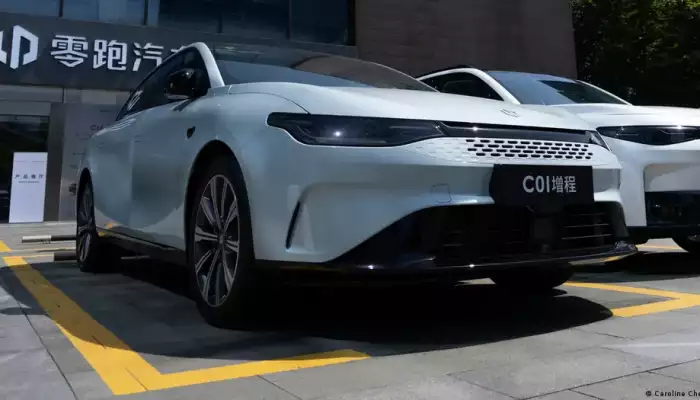The European Commission on Wednesday announced it would impose new tariffs of up to 37.6% on Chinese electric vehicles starting on Friday.
The Commission said the new duties are to counteract what it called "unfair" subsidies Chinese electric vehicle makers receive from the Chinese government.
The subsidies, according to the EU, create a “threat of economic harm” to European car manufacturers.
As of Friday, the new provisional tariffs will be added to the existing 10% import duties. A final decision on the tariffs is set for November as Brussels and Beijing aim to resolve the conflict through negotiations.
What did the EU say?
"There is no basis for China to retaliate after the EU said it will impose tariffs of up to 37.6% on imports of electric vehicles made in China," EU trade chief Valdis Dombrovskis said on Thursday in an interview with press agency Bloomberg.
European Commission President Ursula von der Leyen said the Commission's new provisional duties of 17.4% to 37.6% aim to stop a threatened flood of cheap, state-subsidized electric vehicles.
The European Commission last month initially announced provisional tariffs that are almost identical to those being applied from Friday.
Commission authorities, however, made slight adjustments after companies pointed out minor errors in the initial calculations.
Over the next four months, the tariffs will be provisional while both sides continue intensive negotiations, the European Commission said.
The EU's anti-subsidy investigation will continue for nearly four more months. By then, the Commission could suggest "definite duties" for five years, which EU members will vote on.
How did China respond?
Beijing said it plans to take "all necessary measures" to safeguard China's interests. Chinese officials have considered imposing new tariffs on products like cognac and pork imported into China in retaliation.
"So far both sides have held several rounds of technical talks over tariffs on the issue," the Chinese Commerce Ministry said on Thursday.
"There is still a four-month window before arbitration, and we hope that the European and Chinese sides will move in the same direction, show sincerity, and push forward with the consultation process as soon as possible," said He Yadong, a ministry spokesperson.
Why are German drivers hesitant to buy electric vehicles?
